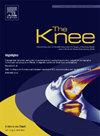Mesenchymal stromal cell injections for osteoarthritis: In vitro mechanisms of action and clinical evidence
IF 2
4区 医学
Q3 ORTHOPEDICS
引用次数: 0
Abstract
Purpose
Existing osteoarthritis treatments are primarily symptomatic, with limited efficacy in modifying the disease’s progression. Mesenchymal stromal cells (MSCs) hold promise due to their multilineage potency, immunomodulation, and pain regulation. This narrative review summarizes the preclinical evidence of different mechanisms of action of MSCs in osteoarthritis treatment. In addition, the clinical evidence supporting these mechanisms is reviewed.
Results
In vitro evidence of MSC differentiation is extensive, while direct confirmation of in vivo differentiation remains scarcer, and no direct clinical evidence exists. The chondro-inductive effect of MSCs is demonstrated in vitro in co-culture with chondrocytes and chondrons. Clinically, treatment of cartilage defects with chondrons and MSCs results in cartilage formation in the absence of (differentiated) MSCs in the final repair tissue, suggesting a chondro-inductive role of the MSCs. MSCs reduce pro-inflammatory cytokine production and promote an anti-inflammatory environment in vitro and in vivo, although the few clinical reports of immunomodulation are limited to short-term outcomes. MSCs directly interact with pain mediators, such as substance P and CGRP, leading to reduced pain signalling in vitro. Clinical studies consistently demonstrate decrease in pain, but this effect does not always exceed that of placebo controls.
Conclusions
Despite promising outcomes in vitro, the disease modifying potential of MSCs in treatment of degenerative joint disease is currently not demonstrated unambiguously in clinical trials. Future clinical trials should aim not only at demonstrating clinical effect, but also aligning clinical outcomes with mechanisms of action.
间充质间质细胞注射治疗骨关节炎:体外作用机制和临床证据
目的:现有的骨关节炎治疗主要是对症治疗,在改变疾病进展方面疗效有限。间充质间质细胞(MSCs)因其多谱系效力、免疫调节和疼痛调节而前景光明。本文综述了MSCs在骨关节炎治疗中的不同作用机制的临床前证据。此外,本文还回顾了支持这些机制的临床证据。结果MSC分化的体外证据广泛,而体内分化的直接证实较少,没有直接的临床证据。骨髓间充质干细胞在体外与软骨细胞和软骨共培养中具有诱导软骨的作用。在临床上,在最终修复组织中缺乏(分化的)MSCs的情况下,用软骨和MSCs治疗软骨缺损会导致软骨形成,这表明MSCs具有软骨诱导作用。尽管免疫调节的少数临床报告仅限于短期结果,但MSCs在体外和体内均可减少促炎细胞因子的产生并促进抗炎环境。MSCs直接与疼痛介质相互作用,如P物质和CGRP,导致体外疼痛信号传导减少。临床研究一致证明疼痛减轻,但这种效果并不总是超过安慰剂对照。结论:尽管在体外有很好的结果,但MSCs在治疗退行性关节疾病中的疾病修饰潜力目前还没有在临床试验中得到明确的证明。未来的临床试验不仅要证明临床效果,而且要使临床结果与作用机制相一致。
本文章由计算机程序翻译,如有差异,请以英文原文为准。
求助全文
约1分钟内获得全文
求助全文
来源期刊

Knee
医学-外科
CiteScore
3.80
自引率
5.30%
发文量
171
审稿时长
6 months
期刊介绍:
The Knee is an international journal publishing studies on the clinical treatment and fundamental biomechanical characteristics of this joint. The aim of the journal is to provide a vehicle relevant to surgeons, biomedical engineers, imaging specialists, materials scientists, rehabilitation personnel and all those with an interest in the knee.
The topics covered include, but are not limited to:
• Anatomy, physiology, morphology and biochemistry;
• Biomechanical studies;
• Advances in the development of prosthetic, orthotic and augmentation devices;
• Imaging and diagnostic techniques;
• Pathology;
• Trauma;
• Surgery;
• Rehabilitation.
 求助内容:
求助内容: 应助结果提醒方式:
应助结果提醒方式:


